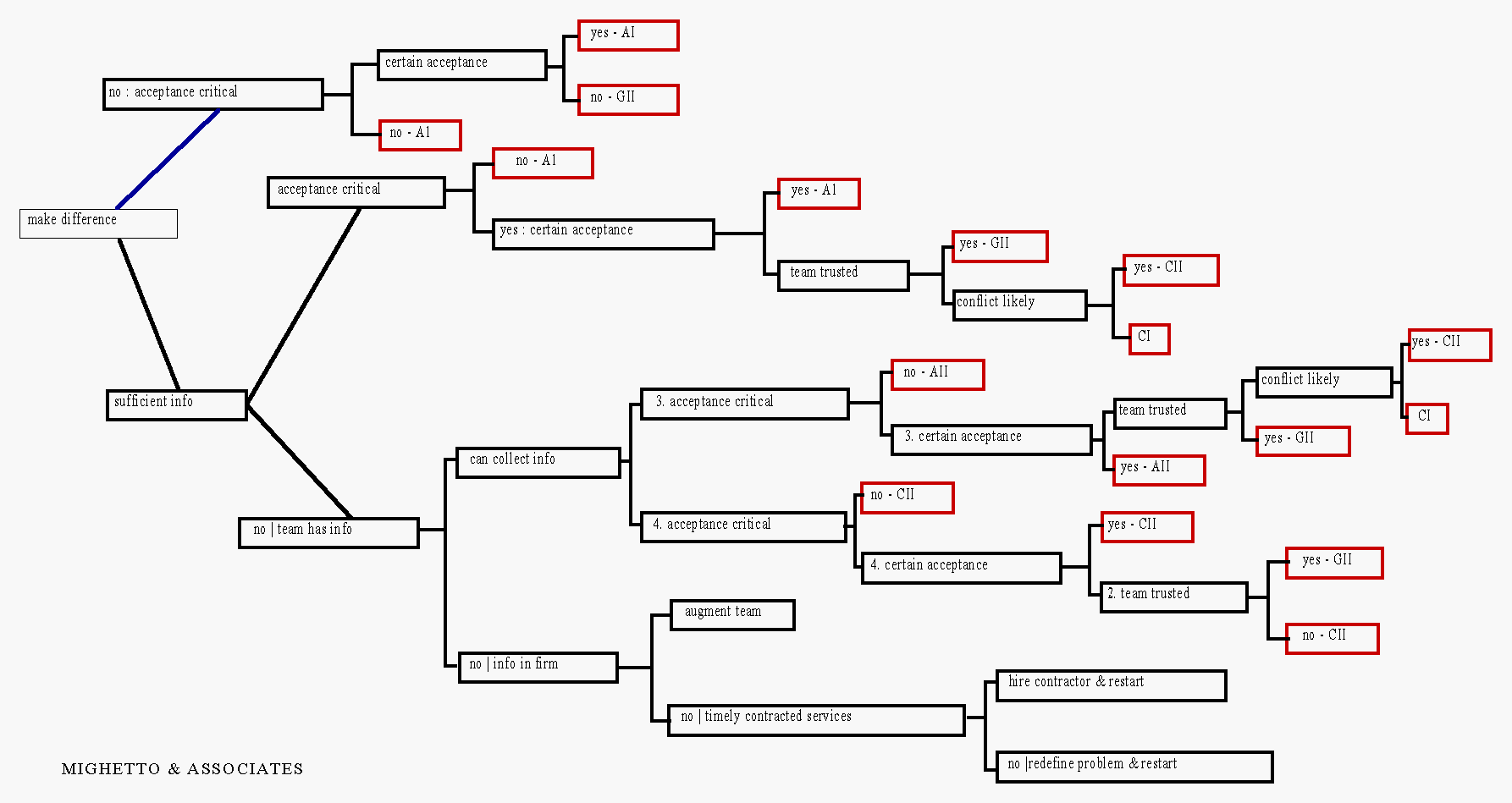 The above diagram is for public use. Select the decision tree by positioning the cursor over the
tree and then click the right mouse button to copy it. Site the source as:
The above diagram is for public use. Select the decision tree by positioning the cursor over the
tree and then click the right mouse button to copy it. Site the source as:
 A decision tree is a map of the reasoning process. It can be used to explain why a question is
being asked. The following decision tree assumes that questions are answered with a certain yes
or no. A tree that allows answering with a partial yes or no would have a much larger number of
end nodes. In real world problems, the intuition of a human expert, or expert system software, is
necessary to determine the likely end node. Each end node represents a situation with known
effective and efficient leadership styles. Unless otherwise noted, NO is down and YES is up. Click on the end node for a description of the efficient style. Click on the question nodes for a full description of what is being aske
d. Right mouse click or use your browser's back function to return to this page.
A decision tree is a map of the reasoning process. It can be used to explain why a question is
being asked. The following decision tree assumes that questions are answered with a certain yes
or no. A tree that allows answering with a partial yes or no would have a much larger number of
end nodes. In real world problems, the intuition of a human expert, or expert system software, is
necessary to determine the likely end node. Each end node represents a situation with known
effective and efficient leadership styles. Unless otherwise noted, NO is down and YES is up. Click on the end node for a description of the efficient style. Click on the question nodes for a full description of what is being aske
d. Right mouse click or use your browser's back function to return to this page.
 The above diagram is for public use. Select the decision tree by positioning the cursor over the
tree and then click the right mouse button to copy it. Site the source as:
The above diagram is for public use. Select the decision tree by positioning the cursor over the
tree and then click the right mouse button to copy it. Site the source as:
http://www.eskimo.com/~mighetto/lstree.htm - last update 4 October 1999.
 See also http://www.eskimo.com/~mighetto/lsvroom.htm.
See also http://www.eskimo.com/~mighetto/lsvroom.htm.
|
|
|
|
|
Mighetto & Associates - 1260 NE 69th St. Seattle, WA 98115 - (206) 525-1458 voice and fax
mighetto@eskimo.com - Internet email address
mighetto@compuserve.com - Internet email address or 72154,3467 from within Compuserve